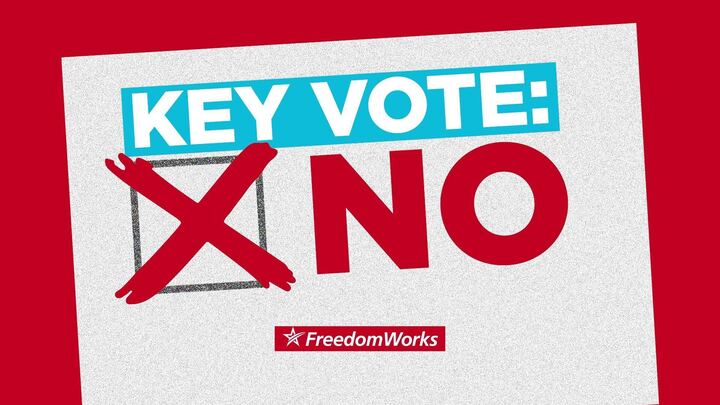We’re One Step Closer to Ending Endless Wars
The Senate is ramping up for its own vote to repeal the 2002 AUMF, as well as the 1991 Gulf War AUMF, but has since postponed the vote as some Senate Republicans claim they want more time and information to consider the repeal. This bill has broad bipartisan support, but Senators remain divided on how to go about repealing AUMF and whether to replace it.
The Big Picture
The 2002 AUMF was passed almost 19 years ago, and the Iraq War ended almost 10 years ago. The time has come for these antiquated authorizations to be repealed. These war-making powers have allowed Presidents to continue pursuing their own agendas of foreign intervention without congressional approval by using the 2002 AUMF as carte blanche to pursue conflicts in ways that Congress did not intend.
A repeal of the 2002 AUMF will require a President to seek the approval of Congress before undertaking a foreign intervention. This is what the Founding Fathers intended, and it will require cooperation between the President and Congress on matters of national security.
The Details
A bipartisan piece of legislation, introduced by Sens. Tim Kaine (D-Va.) and Todd Young (R-Ind.), would repeal the 2002 Iraq authorization and 1991 Gulf War authorization.
- The vote in the Senate Foreign Relations Committee, scheduled for June 22, was postponed. Republicans Mitt Romney (Utah), Mike Rounds (S.D.), Marco Rubio (Fla.), Ron Johnson (Wisc.), and Bill Hagerty (Tenn.) sent a letter to Senate Foreign Relations Committee Chair Bob Menendez (N.J.) requesting a delay in the Committee’s consideration. The vote could occur as early as Thursday, June 24.
- These Senate Republicans argue that repealing the 2002 AUMF will not allow for a smooth transfer of power in regions where U.S. military operations are taking place, that there should be classified briefings from the Pentagon, and public hearings with State and Defense Department officials as well as outside experts.
- “We should fully evaluate the conditions on the ground, the implications of repealing the 2002 AUMF for our friends, and how adversaries — including ISIS and Iranian-backed militia groups — would react,” they argued. “It is also important to consider the policy and potential legal consequences of our reduced presence in the region and the impending withdrawal of forces from Afghanistan.” – Letter co-signed by Senate Republicans
- Senator Minority Leader Mitch McConnell has expressed that a hasty repeal of the 2002 AUMF could be dangerous as it was not only used to support executive action during the Iraq War, but has also authorized many counterterrorism operations.
- Groups on both sides of the political aisle support the AUMF repeal, including:
Why It Matters
The United States cannot continue in a perpetual state of conflict. The 2002 and 1991 AUMFs were passed during times of crisis to give the President the ability to swiftly deal with the conflicts at hand (the 1991 Iraqi invasion of Kuwait and the 2002 Iraqi War). These conflicts have concluded; with the Iraq War ostensibly coming to an end on December 15, 2011.
A repeal of the 2002 and 1991 AUMFs would also not end U.S. counterterrorism operations as these are authorized by the 2001 AUMF passed following the 9/11 attacks. Repeal efforts in the past–such as the attempt to repeal the 2001 AUMF–have failed as they have often attempted to repeal too many powers given to the President to combat enemies abroad. However, the AUMF repeals have already passed the House and have large bipartisan support in the Senate, making this vote the most opportune time to restore balance in our foreign policy.



